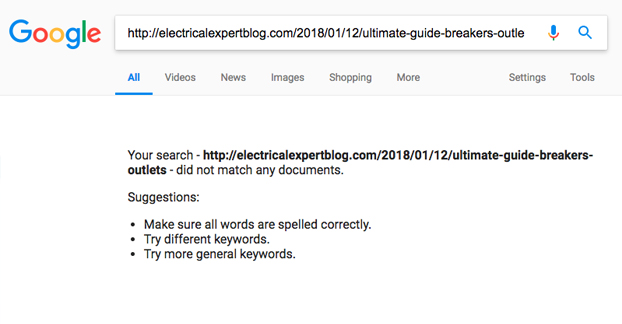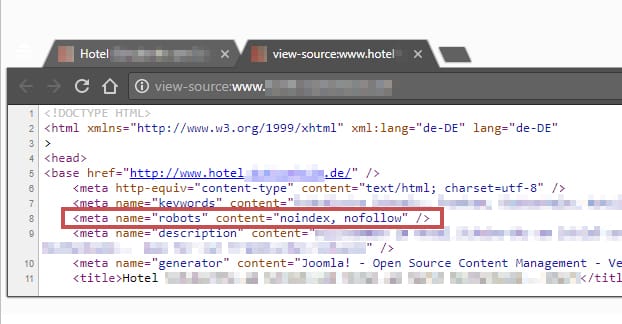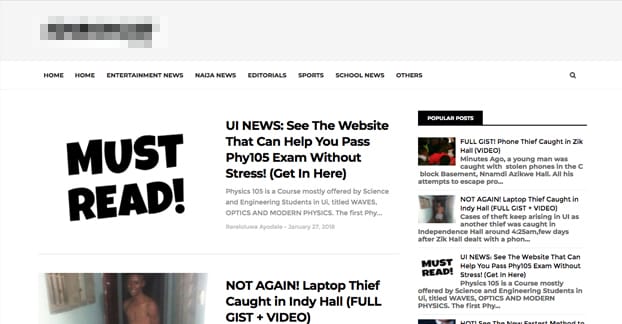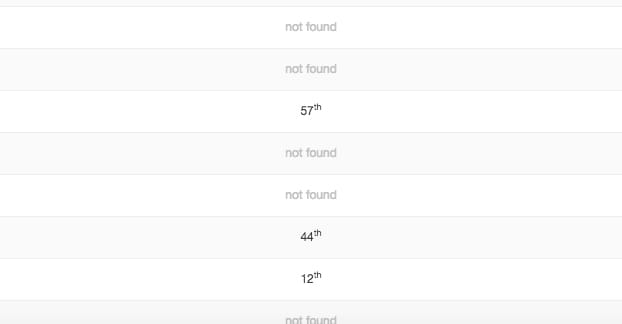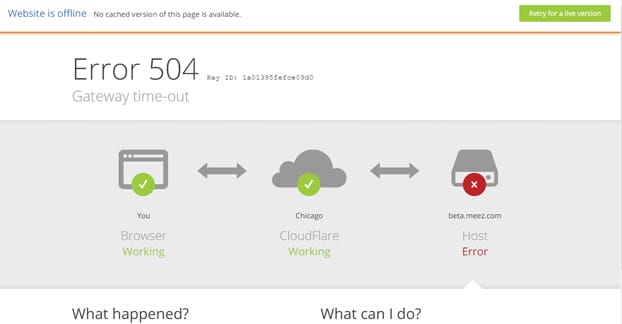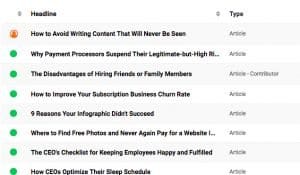One of the primary reasons we bloggers want to write guest posts is to get links to our sites. It stands to reason, then, that we’re concerned if a new guest post doesn’t seem to show up in Google’s search results. It can indicate many issues, but they all result in the same outcome; no value from a post you wrote. What went wrong, and how can you fix it?
The Post Hasn’t Been Published Yet
First of all, you should check the site where you sent the guest post. I’ve seen people submit a guest post and get it approved, and that’s that; they assume it’s up, it’s published, and they wonder why they don’t see a backlink. When they go to check up on the post, they find that it has been accepted, yes, but just scheduled; it hasn’t been published yet.
It can be a bit embarrassing to freak out over a post not showing up when the post hasn’t been published yet, but hey; sometimes “is it plugged in?” is the first troubleshooting question for a reason.
You Haven’t Waited Long Enough
If you’ve confirmed that the post is in fact published, the first thing you should do is wait. We like to think of Google as some monolithic presence that is aware of every aspect of the internet at any given moment, but the fact is they’re limited in their ability to scan the world. Just like it’s impossible to monitor every square inch of the planet at any given time, it’s impossible to monitor every single website for every single change they make in real time. There’s just too much of it.
In fact, it can take anywhere from a day to a month or so for Google to index a new page on an existing website, and that’s in ideal conditions. If the site is small, new, has barriers to indexing, has code errors, or has anything else preventing it from running perfectly, Google can take even longer to index the content.
Now, I’m not saying you should wait 30 days before considering any sort of action. Just make sure you’ve waited at least a week after publication. Generally, by then, the post should be indexed. If it’s not, then you can start looking for reasons why it’s not.
The Site Uses Parameters in URLs
For a while in the mid-90s or so, it was commonplace to use parameters as a way of picking and serving content on the web. Rather than a structure like www.example.com/blog/post-title, you would have a structure like www.example.com/?post=399391. The problem is, these parameters generally need permalinks, and if a site doesn’t have them, that content might not be indexed properly.
It’s a long shot, but if the site hosting your guest post is using such an antiquated URL structure, you may have to wait a while longer. Chances are the content will be indexed eventually, particularly if you link to it in a few places and on social media, but it’s going to take a while for Google to find it, to index it, and to make sure the parameters aren’t going to change and cause duplicate content issues.
If the parameters DO change, the site might be a haven for duplicate content problems, which means they’re probably penalized by Google themselves. That means even if your content does show up and is indexed, it will be very low on the search rankings.
The Article was Back-Dated
In some cases, Google might use the date of a post to guide when to index it. This is mostly a problem with synchronization with a sitemap. Google loves it when you submit a sitemap to their webmaster console, and keep that site map up to date. They will check the publication dates of the posts in the sitemap and will index anything new they come across when they refresh your map.
In some rare instances, backdating a post in the sitemap will put it before the most recent indexation sweep. When Google checks, they don’t see the post as being new since the last visit, so they don’t index it. It can take a while – a more thorough indexation of the site or new indexation of links to the new post – before Google realizes that one piece of content slipped through the cracks.
Now, obviously Google is smarter than to be fooled by a backdate; they use indexation date to see who published the initial copy of copied content, for example. However, they also don’t do thorough, deep-dive scans of every site on a regular basis. Most of the googlebot crawling is simply maintenance, finding the low-hanging fruit and indexing content they’re told exists.
The Site is Set to Noindex
Noindex is a bot command you can give to the googlebot which tells Google not to index that content. Google will still look at it if it’s visible, but they won’t add it to the public search index. Some sites use this for content they create but are not ready to publish yet. Other sites use it for when they design a new version of the site; the “live” test version will be left noindexed.
Occasionally, the noindex parameter can slip through on a site and cut it off from Google. Usually the site owner will notice and will fix the issue right away, but sometimes it sticks around.
Check the meta header of the page specifically and look for noindex. If you don’t find it, check the site’s root folder for a robots.txt file, something like www.example.com/robots.txt. If one exists, look for a line like “User-agent: * Disallow: /”. This kind of line indicates that the site as a whole is noindexed. It can also have specific URLs or subfolders listed, so check for yours. If you’re able to browse files on the server at all, you might see if you can find the .htaccess file and look there too, though it’s usually hidden from public view. Since we’re talking about guest posts, I’m assuming you don’t have server-side access.
The Content is Extremely Bad
In some extremely rare cases, very bad content is simply ignored by the search engine. I imagine if you care enough to even begin to read blog posts about indexation, you’re not producing that kind of content, though.
More likely, the surrounding content is too bad for Google to index the site. Sites with a dozen affiliate links in every post, with 20 different display ads, or with some scam-like design are likely to have issues being seen.
Something Trips a Malware Flag
When a site has broken code or has been hacked, Google will cease indexing it temporarily and will throw up a malware notice in the search results for people who find it. This is similar to a browser notice; it lets the user through if they want, but warns them that their computer is at risk if they click the link.
A malware flag on the site will prevent it from showing up in Google searches, and Google won’t bother indexing new content on the site until they see that the malware has been cleaned up. They take great pains to protect users while still allowing them to make the choice of visiting a malicious site if they so desire.
Of course, if the site hosting your guest post has been hacked, there’s more for them to worry about than indexation. It might be worth reaching out to let them know; a malware warning can show up because of a malicious ad run through a third party program, not just a hacking.
Low Ranked Website
So, how are you checking to see if your guest post has been indexed? If you’re running a keyword search and you’re not seeing it, it’s possible that the site just isn’t high quality enough to show up in the top results. Try paging a few pages back, or using a site search to see if the content exists. A site search with the title of the post as the query often works quite well at seeing if content is indexed or not.
Sometimes the content exists, it’s just low ranked. That’s not your fault; your content is probably fine in quality, especially if you’re in a position to be guest posting anywhere. It’s more the fault of the site owner, who hasn’t paid enough attention to SEO – or has too much competition – and isn’t in the top results. Unfortunately, that’s not a problem you can solve; you just need to hope the site gets better.
The Site Has Downtime
Another thing that can cause issues with indexation is site uptime. If a site isn’t up and available all the time, Google might not want to serve it to their audience. After all, what good is it to recommend a resource if that resource is going to be unavailable sometimes.
Downtime can come in many forms. A DDoS attack can take down a site and cause issues. DNS errors can make a site unreachable. Issues with a .htaccess file can make it hard to access a site, or stick it in an infinite loop of loading. Even DDoS protection like cloudflare can delay loads and make it look like a site is having issues when there’s nothing going on.
Google isn’t going to deindex a site based on a single issue, but if uptime is inconsistent on an ongoing basis, they’ll be a lot more likely to drop it. This, again, isn’t an issue you can fix. The site owner will need to figure out why their site isn’t always available and will need to fix the issue, which might involve anything from tweaking a configuration file to migrating to a different web host.
If The Site is Not Indexed
If the site hosting your guest post is not indexed, or the post itself is not indexed, what options do you have? How can you fix it?
For most issues, you unfortunately don’t have much recourse. You can’t dig into configuration files or update a site map or anything else from an external position. You also might not be welcome giving advice to a site owner, if that site owner is sensitive about their coding ability or has been having trouble with issues they haven’t been able to solve. It does you no good to point out that “hey, your site has issues” without being able to help solve those issues.
As for what you can do, first you need to make sure that your post is actually published and available to the public. If your post hasn’t been published, you can’t do anything about it; you just need to wait until it is.
As a side note, if the person who accepted your guest post never publishes it, you might consider publishing it elsewhere. It depends on whether or not you signed a contract to give them the rights to the content. If they have content rights, you’re out of luck. If there was no contract, or if you maintain rights, or if rights revert to you if the content wasn’t published in X amount of time, you can take the content elsewhere to use.
If the content is published, the best you can do is try to promote it. Post the link on your social media feeds and link to it from your blog. At the very least, you can funnel some value in their direction to try to encourage them to fix their site. If the problem is simply that the site is low ranked, adding value can bring up the value of their site, which in turn brings up the value of the link. This can help it get indexed faster.
Other than that, mostly all you can do is wait and try again with another site. Just note down when a site fails to publish or fails to have indexed content; these are sites you generally don’t want to work with again.
 ContentPowered.com
ContentPowered.com
